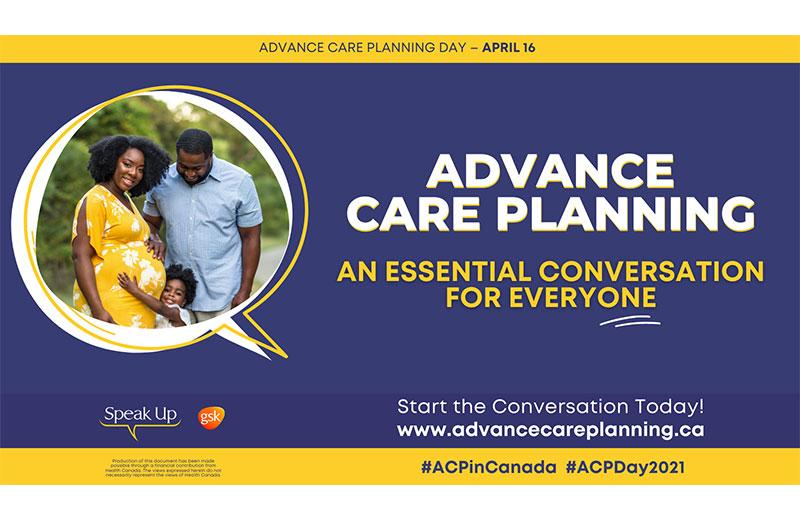Advance care planning is the process of making a plan for your future health care. This process can be as casual as starting to do some self-reflection on what makes life meaningful to you and how that may look in the context of an illness, or it can be as official as designating a decision maker and filling out a formal plan like the one found in the advance care planning guide My Voice.
An advance care plan has two main functions:
- It identifies what kinds of treatment you do or don’t want to receive as you near the end of your life and/or when you can no longer make decisions for yourself.
- It identifies a person you’ve chosen to make treatment decisions for you if a times comes when you’re unable to make decisions for yourself. This person is called a substitute decision maker.
When to make an Advance Care Plan
This plan can be made any time, and it’s never too early. It’s also easiest to create your plan when you’re healthy and have the time to reflect on what’s important to you. Planning early gives you time to learn about the options and situations that might occur at end of life.
Thinking about end of life can be uncomfortable, and it’s not uncommon to want to avoid addressing it. But learning about your options is really a gift to your loved ones, saving them from the stress of making these hard decisions for you.
As long as you can still make your own decisions, your advance care plan won't be used. You can say "yes" or "no" to treatment at any time. But if you become unable to make your wishes known, having an advance care plan in place gives the people who would be making decisions for you the guidance they need to honor your wishes. Having an advance care plan in place is as important as making a will, but is often overlooked, resulting in sometimes less than desirable end of life experiences.
Advance Care Plans are tools for patients and their families
In my experience as a Hospice and Palliative Care Nurse, I’ve been part of a wide range of end of life experiences. Even with a clear designated decision maker and clear advance care plan that is followed, end of life can still be a sad and painful time. When the patient’s wishes are honoured, whatever those wishes are, there can also be feelings of satisfaction among bereaved family members. There isn’t the ethical angst and uncertainty of not knowing what a loved one would have wanted. Families have more energy to be present with the time that is left rather than worrying about what to do. Having an advance care plan is often a relief to a patient’s family and it’s a tool for the patient that can direct care at their end of life.
Dialoguing about advanced care planning should be a natural and regular part of your healthcare. You should know you have the right to decline treatments offered at end of life, and what the pros and cons of those treatments are. An excellent education resource that reviews common difficult end of life decisions and gives pros and cons to assist in decision making at end of life can be found at HealthLinkBC.
The COVID-19 pandemic had increased uncertainty for everyone. Take responsibility for your own advance care plan and challenge yourself to start talking about care planning with patients and with your own family. It’s okay to not be sure about what you want at end of life, or feel like you might change your mind. You don’t have to have all the answers now – what’s important is you take the first step. Death is something we will all experience whether we do our advance care planning or not. Take your first step and create your advance care plan today.














Comments